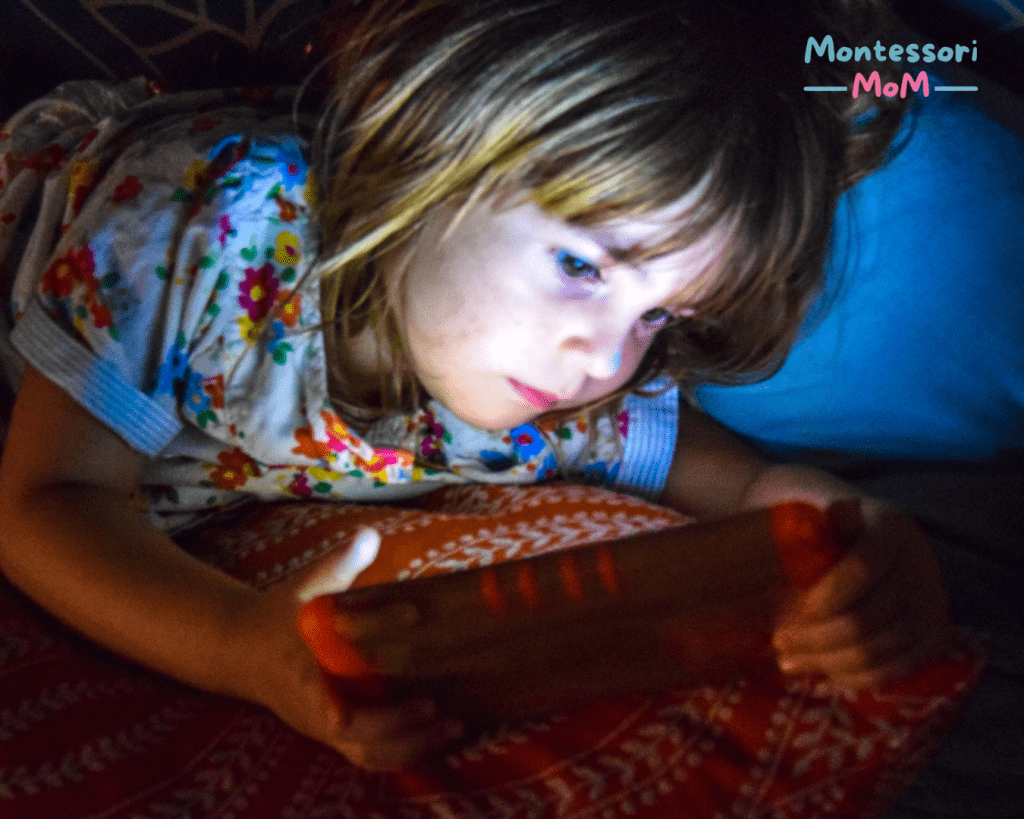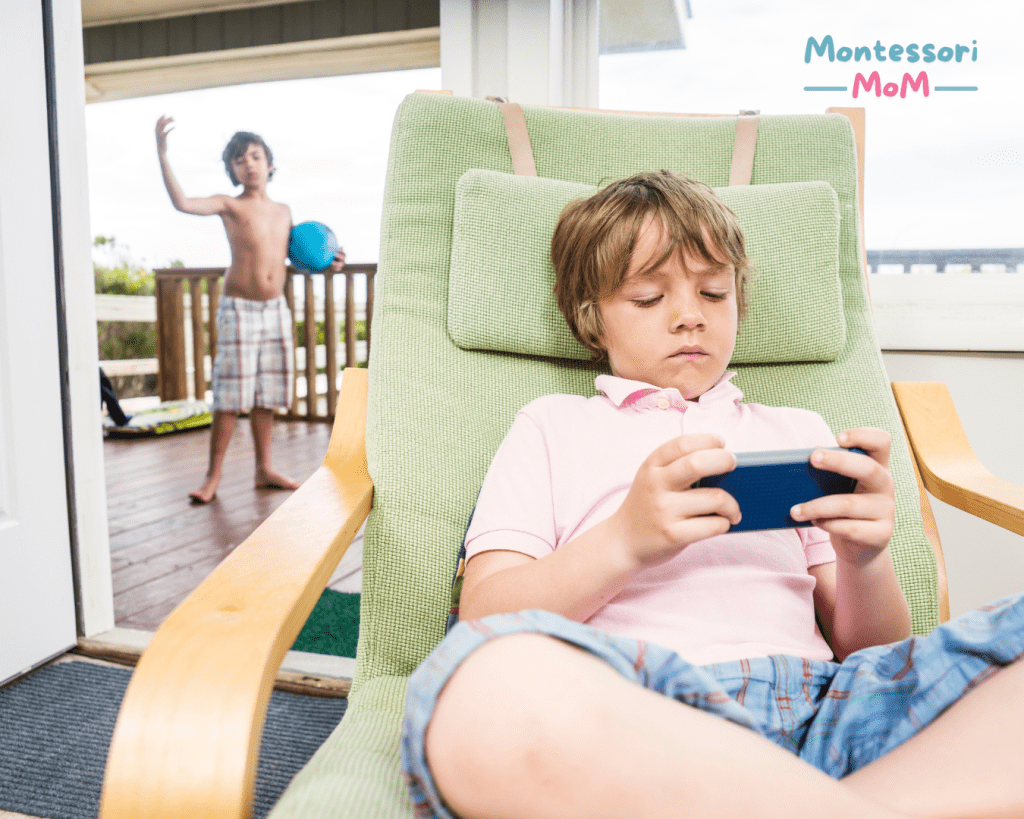Screen Time's Shocking Impact
Reconnect with Your Child Now

A Growing Distance Between Parent and Child
As a parent, you treasure the moments when you feel close to your child—the laughter, the talks, the shared experiences that strengthen your bond. But what happens when those moments become less frequent? What if, despite your best efforts, you feel like your child is drifting away, becoming more distant, less engaged, and harder to reach?
For many parents, this emotional distance isn’t just a worry—it’s a reality. One of the silent factors contributing to this distance could be the screens that are taking up more and more of your child’s time and attention. In this article, we’ll look at how too much screen time, especially before bed, can create emotional barriers between you and your child, and what you can do to reconnect.
The Emotional Impact of Screen Time
- Less Face-to-Face Interaction
What’s Happening:
One of the biggest ways screen time can lead to emotional distance is by reducing the amount of time
you spend interacting with your child face-to-face. Studies show that when screens are part of the evening routine, the time spent talking and bonding drops significantly. This loss of quality time can weaken the emotional bond between you and your child, making it harder to stay close.
- The “Screen Fog”
What’s Happening:
Children who spend too much time on screens, especially before bed, can experience what some researchers call “screen fog.” This is when a child becomes less responsive to what’s happening around them. They may seem uninterested in family activities and emotionally distant, as if they’re not really present. This “fog” can create a barrier to the emotional connection that’s so important during their growing years.
- Decreased Empathy and Social Skills
What’s Happening:
Too much screen time has been linked to lower levels of empathy and weaker social skills in children. When kids spend more time with screens than with people, they miss out on the little cues and interactions that help them develop emotional intelligence. Over time, this can make it harder for them to understand and respond to the feelings of others, deepening the emotional gap between you and your child.
Why Screen Time Before Bed Is Particularly Harmful
- Disruption of Bedtime Routines
What’s Happening:
Bedtime is often a time for families to relax together, share stories, and prepare for the next day. But when screens take over this time, these important routines can be disrupted. This can lead to rushed bedtimes, skipped rituals, and missed opportunities for connection.
- Increased Irritability and Behavioral Issues
What’s Happening:
The blue light from screens can mess with your child’s sleep patterns, leading to poor sleep and increased irritability. A tired child is often a cranky child, which can put a strain on your relationship. The lack of sleep can also make your child feel more emotionally distant, making it even harder to connect with them.
- Long-Term Effects on Bonding
What’s Happening:
Bedtime is a key time for parents to bond with their children. It’s a time to share stories, talk about the day, and strengthen the emotional bonds that form the foundation of a healthy parent-child relationship. When screens replace these moments, the long-term effect can be a weakening of the relationship, as the emotional connection fades over time.
Rebuilding the Connection: Practical Steps for Parents
- Create Screen-Free Zones
What You Can Do:
Designate certain areas of your home, like the dining room and bedrooms, as screen-free zones. This encourages more face-to-face interaction and makes sure that screen time doesn’t take away from moments meant for connection.
- Prioritize Family Time
What You Can Do:
Make it a priority to have daily check-ins with your child, where screens are put away, and the focus is on conversation and connection. Whether it’s during dinner or before bed, these moments can help rebuild and maintain your emotional bond.
- Introduce Engaging Activities
What You Can Do:
Replace screen time before bed with activities that encourage interaction and emotional engagement. Reading together, playing board games, or having a nightly chat about your highs and lows of the day can strengthen your relationship.
- Be a Role Model
What You Can Do:
Children often imitate their parents, so it’s important to show healthy screen habits. If your child sees you choosing face-to-face interaction over screen time, they’re more likely to do the same.
Taking Back Control of Your Family’s Time
The emotional disconnect that many parents are feeling with their children doesn’t have to be permanent. By managing screen time, especially before bed, you can start to rebuild the connections that have been weakened. Setting up screen-free routines, focusing on quality time, and engaging in meaningful activities can help close the emotional gap and bring you and your child closer together.
Ready to take the first step? Download our free guide:
Bedtime Detox & Connect Plan for Busy Moms.
This plan provides you with a simple step-by-step guide to creating your own effective bedtime routine designed to transform bedtime chaos into calm. By following these steps, you can reduce screen time tantrums, improve your child’s behavior, and strengthen your parent-child bond.
Inside, you’ll find a clear, step-by-step instructions with engaging activities and practical tips to help you create a peaceful, screen-free evening. Let’s get started and make bedtime a time of tranquility and connection.





